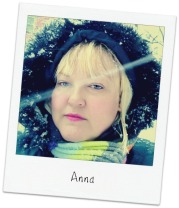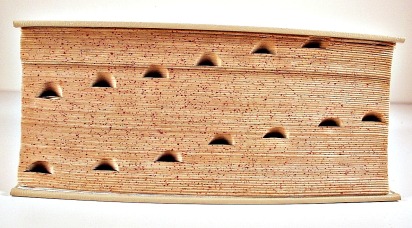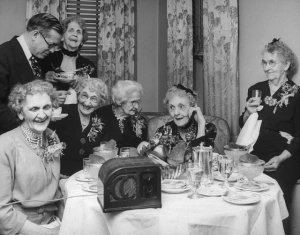Last week I took my fourteen-year-old daughter to the public library near our home. As is her wont, she disappeared into the stacks. I knew she would reappear when she was ready to leave, laden with a stack of books, asking for my library card because hers is always misplaced.
I wandered over to the corner where old books are for sale, where an elderly volunteer sits peacefully, watching over literature even the library does not want: microwave cookbooks, tattered romances, so many beauty magazines. It surprises me that those devoted to beauty magazines are so conscientious about donating them to the library.
surprises me that those devoted to beauty magazines are so conscientious about donating them to the library.
I found a hardback copy of a Henning Mankell book, signed by the author. My Estonian friend, Anna, a fellow fan, says Henning Mankell is a gateway drug to literary schlock. I mention she is Estonian because of her ethnic proximity to Sweden and her Nordic good looks and the fact she is a fellow Swedophile. The Mankell book was ten dollars, the Veuve Clicquot of the library sale shelves. The elderly gentleman who collected the money kept insisting it was $1, the standard, discarded hardcover price. “Signed edition,” I kept repeating. “Hardcover,” he kept repeating. We worked it out.
Then, there on the bottom shelf, I spotted it: all heft and bravado, smarter than the beauty magazines, vocabulary light years beyond The Man from Beijing— a big, fat, 4-inch-thick, 10 pound dictionary. Bigger than any dictionary I had before dictionaries were passé.
It was $4. I bought it, all 2,078 pages of it. It was published in 1989, and the price on the inside corner of the cover is $79.95. That’s more than $154 in today’s dollars. Have you spent $154 on a book lately? On ONE book?
 Today a big, fat dictionary is superfluous in a world where we can Google anything we need: the definition of a word, Pi to the tenth place or a photo of Cary Grant. Looking up words nowadays is precise and tidy business, just tap tap tap to the definition, read and exit. We no longer move through other words, see related meanings and come across even more words, paging through thousands of words, reciting the alphabet in our heads as we go, the smell of dusty paper in our nostrils. Do you remember that? It was a meditative experience, Lectio Divino.
Today a big, fat dictionary is superfluous in a world where we can Google anything we need: the definition of a word, Pi to the tenth place or a photo of Cary Grant. Looking up words nowadays is precise and tidy business, just tap tap tap to the definition, read and exit. We no longer move through other words, see related meanings and come across even more words, paging through thousands of words, reciting the alphabet in our heads as we go, the smell of dusty paper in our nostrils. Do you remember that? It was a meditative experience, Lectio Divino.
“I had a cousin once who lived in your dictionary, inside the binding, and there was a tiny hole which he used for a door, and it led out between trichotomy and trick. Now what do you think of that? It was only a few minutes walk to trigger, then over the page to trinity, trinket and trional, and there my cousin used to fall asleep.”
– Janet Frame, Scented Gardens for the Blind
My children, 14 and 17, were immediately drawn to the big, fat besservisser. (Our Swedish exchange student taught me that word, because he is one. He also taught me fjortis, because my daughter is one.) I found it in the living room where my son had been pouring over it. I found it in my daughter’s bedroom, open, half on the bed, half on the nightstand, nested in the rumpled blankets, as if they had been canoodling.
Where is your dictionary?

